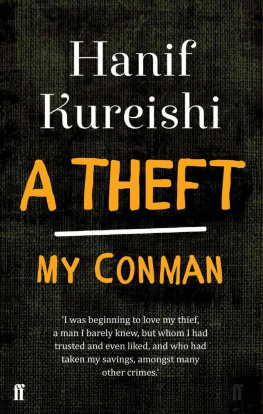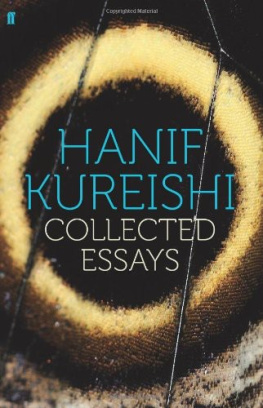Hanif Kureishi
A Theft: My Con Man
Silent, foul spiders spin their web in the base of our brain
CHARLES BAUDELAIRE, Les Fleurs du mal
I met a man who fed a worm into my ear, and it lived there for more than a year, where it became comfortable and began to devour my mind and eat into my brain. Colonised and infected, I was anxious and depressed, and, at times, a shell. I staggered about like a dying man and slept as much as I could; being awake was no fun. I understood hiding, denial and the passion for ignorance.
Sense is usually the last thing that anyone wants to see, but eventually the truth presses down until you have to open your eyes. I began to hate this man, whom I had only recently met, but who had led me on, and then deceived and stolen from me. At one point, it seemed, he even pretended to be me. After doing this, he disappeared but rang every day for months, with apologies, offers of help and mad promises.
I found my hate was so great that not only was it corrupting me ruining my view of the world until I believed it was only foul but, to my surprise, by some mysterious alchemy, it was turning into love. I was beginning to love my thief, a man I barely knew, but whom I had trusted and even liked, and who had taken my savings, amongst many other crimes. At one low point I was phoning him every hour. I was impatient with everyone else because I was thinking of him all the time. I was waking up at night to think of him more, and when he did call, my heart leapt. I would retreat to a quiet room where I could hear every tone of his voice. I would, I even thought, go to his house and see him in his privacy. I would become his stalker.
Freud wrote that love involves the undervaluation of reality and the overvaluation of the desired object. While the correct valuation of a person is an odd, if not impossible idea, we might say Freud meant something like this: for various reasons, many of them masochistic, we become involved with others who cannot possibly give what we ask for; we can wait as long as we wish, but they do not have it, and one day, if we can bear to abandon our fantasy and see clearly, we might face reality straight on. We will then look elsewhere for fulfilment, to a place where our needs can, in fact, be satisfied.
At the beginning of this business, one of my agents, the man who had recommended Chandler, had told me how impressive Jeff had been at meetings. Clever and decisive, Chandler had satisfactorily done my agents accounts, as well as those of my agents family. Chandler was on top of things. He knew what he was doing. Everyone felt in good hands. But, by the end, when everything had gone wrong, the truth was that Chandler did not have anything. However, he remained confident and liked to give the impression he did have it all. Or he maintained that he would have it soon: funds were on their way from Spain or Switzerland. And so I kept asking for it, but he knew, and I realised eventually, that he had lost everything. It would never come back, and this was a loss I would have to live with, think about, and attempt to integrate.
*
Pop and the theatre, my first cultural loves, are both, in form and content, games of deception, deceit and mischief, where there is nothing authentic or real behind the artificial front, except the desire to play and to be someone else. David Bowie knew that pop was a put-on; he lifted and modified everything that interested him. Ive always been fascinated by the nefarious cleverness of hypnotists, tricksters, card sharps, mountebanks, con men, convincers, deceivers, big-mouths, bigamists, hiders and cheats; men who had three families living in one neighbourhood unbeknownst to one another, others who pretended to be doctors, pilots or Olympic swimmers, or who concealed an evil past as a Nazi. I like to think of the man who tried to sell the Eiffel Tower to an industrialist by convincing him it was to be used for scrap metal. I think of undercover agents, of anyone who has talked someone into something, someone with nothing who can persuade others, using words, that they have it all, or at least something desirable. The con man is the one who has the password to your hopes, who touches the G-spot of your wishes. Honesty and straightforwardness are dull; the con man makes you aware that life could be more gratifying than it is. He is everyones procurer, the sorcerer who conjures fantasy in you, the ever-flowing mother who will fill you up with good things, the one who can identify what you want even before you see it yourself. One shouldnt forget that Hans Christian Andersens tale The Emperors New Clothes is the story of an almost successful con, of a couple of weavers who convince an Emperor that he is more than he is. His vanity is their instrument, and they play on him until he is exposed and humiliated.
As many of us do, I come from a family of showoffs, fantasists and big-mouths, and I wanted to be big myself, once bigger than I in fact was. Sometimes I even believed we big-mouths were all in the same game: isnt a writer a kind of con artist or spellbinder, telling stories for their life like Scheherazade, drawing the other into a conspiracy of lies, convincing them to turn the page and believe in flapdoodle?
Naturally, I identified with the con man and his omnipotence over the other, and not with his victims. But in this case I was the victim; I was the seduced, taken one. Jeff Chandler had helped himself to my money, and he had robbed me of more than that: of an orienting and useful connection with reality, which, once it had slipped away, left me feeling bereft, abject, dizzy and out of control. He had done me over, and done me in.
Long before this, though, and long before I learned that the insane, these days, might disguise themselves as money experts, I had heard that no one had met a sane accountant. Certainly, one of my previous accountants had been unwashed, almost incoherent and, at the end, covered in paint smears, having fallen, he said, into a fence on the way to my place. Nevertheless, before this collapse hed been a mixture of insanity, probity, cunning and high intelligence.
For my part, I was a good bourgeois bohemian who had always earned a reasonable and steady income. I considered my single duty was to support my children, otherwise I liked not having to think about money. As I needed an accountant, a kind friend then recommended someone competent they knew, but said she sidelined as a rubber-clad dominatrix at night. You could file your expenses and get a whipping. I thanked my friend, but thought that as the work was relatively simple, it might be a good idea to go with the straightest person I could find, a pillar of the community. And Jeff Chandler appeared to be upright. The firm hed been a partner in for ten years theyd been around for seventy were the acme of respectability, with smart offices and a successful clientele. This lower-middle-class clerk would know and follow the rules, so that I could break them in my imagination. That was the idea. What could go wrong?
It was a relief when Jeff turned up at my place, appearing competent, unflustered and on top of it all. What one wants, sometimes, is certainty and a guide, someone who knows better than you what they are doing. Jeff didnt appear to be superinflated like some people. And Id been trained, as a child, to be something of a truster; as a writer, I was a listener.
*
When the con man walked through my door for the first time, I saw a small, chubby fellow with a high voice whom I could imagine singing enthusiastically in a choir. He wore cheap brown shoes and a clammy suit, and he soon informed me that his hobby was collecting James Bond memorabilia. Alongside his love of thrillers, he managed the finances of several churches, running their fund-raising quiz nights. His Congregationalist church in Essex supported other, similar churches in Albania. This was how, apparently, he had met his Albanian fiance, as he always described the woman he seemed to be involved with. Super-friendly, easy-going with an undogmatic nature, Jeff said I could call anytime. And, indeed, he wore his telephone headphones continuously, muttering away into the mouthpiece even as he walked into my house and sat at my table, waiting for me to fetch him some water. He was always available, he declared, except on Sunday morning, when I was not to ring since he was at church with his family. He was devout, and didnt drink alcohol; hed never had a hot drink: even the madness of tea had never passed his lips.

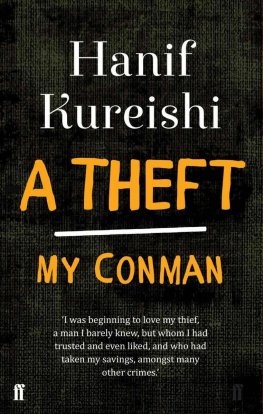



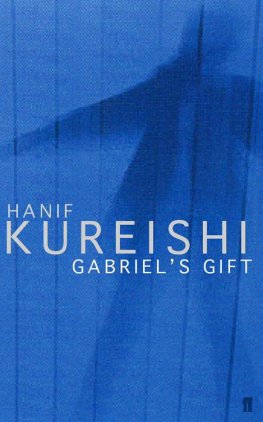



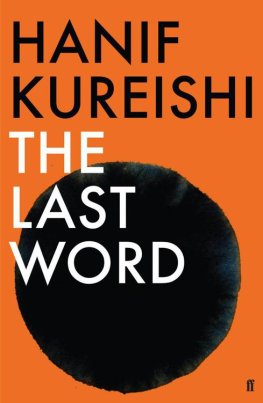
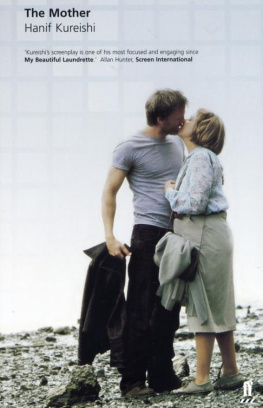
![Hanif Kureishi [Hanif Kureishi] - What Happened?](/uploads/posts/book/141306/thumbs/hanif-kureishi-hanif-kureishi-what-happened.jpg)
